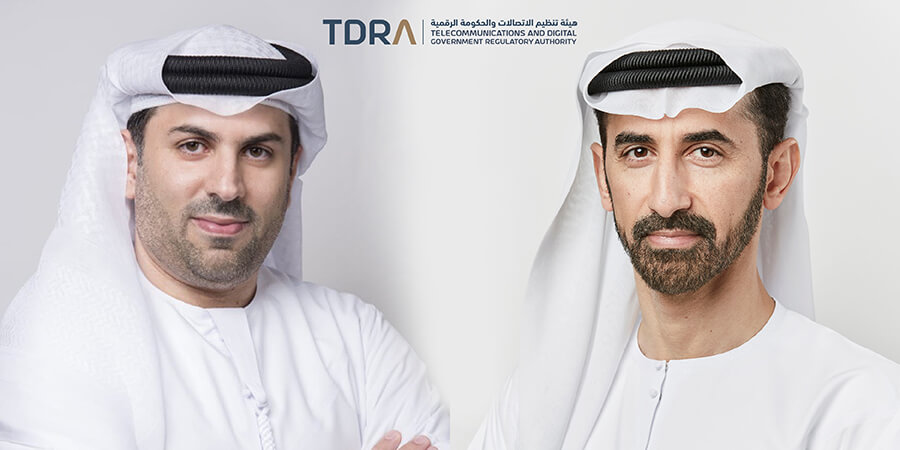The Telecommunications and Digital Government Regulatory Authority (TDRA) has unveiled an extensive strategy to spearhead research and studies concerning the advancement of ‘International Mobile Telecommunications’ (IMT-2030) technology, also called the sixth generation of mobile networks (6G).
This initiative is a proactive response to the ever-evolving dynamic landscape of International Mobile Telecommunications (IMT) and focuses on detailed technical specifications that can be leveraged to advance the functionality and performance of mobile systems. Furthermore, it aims to address the evolving needs of society and the economic sector, bridging the gap between current communication services and future requirements. The ultimate goal is to foster a comprehensive, digitally-integrated, and interconnected way of life in the future.
The release of this roadmap aligns with the decisions made during the Radiocommunication Assembly 2023 (RA-23), hosted by the UAE from 13 to17 November in 2023. During the Assembly, a resolution was determined, urging stakeholders in the communications sector to focus on developing radio technical standards and specifications for the sixth generation of the International Mobile Service (IMT). It's important to highlight that the RA-23 has approved Recommendation (ITU-R M. 2160), also known as IMT-2030, which outlines the framework for 6G. This lays the groundwork for the future development of network standards.
Leadership Redefined
Commenting on the roadmap release, H.E. Eng. Majed Sultan Al Mesmar, Director General, TDRA, said, “The 6G Roadmap aligns seamlessly with the futuristic directives of the UAE. It particularly resonates with the UAE Centennial 2071 and the ‘We the UAE 2031’ vision. These visionary frameworks, characterized by their pillars, aim to enhance the UAE's global position as a hub for the new economy and [aid in the] the establishment of a ‘Forward Ecosystem’. TDRA, in collaboration with the telecom service providers and other entities, is committed to ensuring that 6G becomes a testament to the UAE's continued leadership.”
Meanwhile, H.E. Eng. Mohammed Al Ramsi, Deputy Director General, TDRA, said, “This plan signifies a turning point in the evolution of [the] telecommunications sector, as the support for 6G networks will unlock new and unprecedented use cases. It will enhance user experiences and facilitate innovative communication between individuals and devices.”
Also Read: The next G wave: 6G is coming soon
According to the plan, 6G is poised to introduce a suite of new capabilities, encompassing applications in artificial intelligence, network virtualization, sensing, and comprehensive coverage. Simultaneously, the existing capabilities of 5G will undergo enhancements, targeting improved efficiency in frequency spectrum utilization, connection density and traffic management. These advancements aim to optimize performance within specific regions and reduce the response time significantly.
Anticipated advancements in 6G foresee the development of innovative use cases, such as the digital transmission of human senses (sight, sound, taste, touch, and smell) worldwide, which is characterized by low latency and high accuracy. This breakthrough technology is expected to enhance the capabilities of robotics and elevate artificial intelligence. It also holds the potential to revolutionize various domains, including autonomous intelligent transportation systems and transformative developments in healthcare, such as remote surgery and diagnostics. The realization of these groundbreaking technologies necessitates a global availability of additional radio frequencies.
Launch in 2030
The roadmap unveiled by the TDRA outlines a schedule that begins in 2024 with the formation of a committee. This committee's mandate encompasses conducting scientific studies, research, and the development of technical standards and specifications for 6G.
Furthermore, it will disseminate these studies on global platforms like the International Telecommunication Union (ITU), alongside collaboration with renowned International Standards and Standardization Institutes (IEEE and 3GPP). Notably, Khalifa University will lead this committee within the UAE, with its membership extending to encompass manufacturers, operators and the TDRA.
The roadmap includes the possibility of conducting 6G experiments to further advance the technology within a comprehensive ecosystem. This will be achieved through strategic collaborations with the industrial, academic, and governmental sectors.
The TDRA will play a pivotal role in facilitating these experiments by providing the necessary frequencies and regulatory frameworks. This support, coupled with advanced spectrum management practices enabled by the 'ICT Regulatory Sandbox,' will pave the way for the launch and widespread adoption of 6G services in the UAE before 2030.
Also Read: Etisalat embarks on its 6G journey
